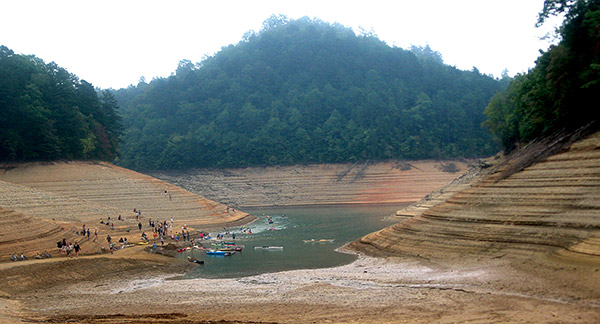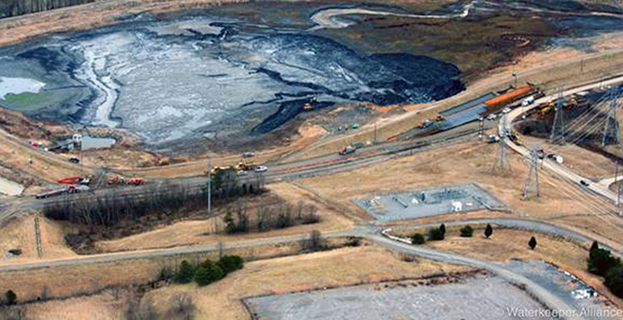Posts Tagged ‘EPA’
High Courts Support Air Pollution Standards
By Brian Sewell A series of recent court rulings have supported air pollution standards proposed by the U.S. Environmental Protection Agency, adding to the challenges facing utilities that rely heavily on coal. In April, a federal appeals court upheld the EPA’s Mercury and Air Toxics Standard, a rule finalized in 2011 targeting emissions of mercury…
Read MoreConfronting Carbon Pollution
By Molly Moore Six months after declaring “climate change is a fact,” in his State of the Union address, President Obama prepared to unveil what The New Yorker calls “the policy centerpiece of his second term.” The U.S. Environmental Protection Agency guidelines that he was poised to announce at press time will put in motion…
Read MorePushing for Effective Coal Ash Rules
On Jan. 29, the EPA was ordered to finalize the first-ever federal regulations for disposal of coal ash by Dec. 19, 2014, following a lawsuit brought by environmental and public health groups and a Native American tribe.
Read MoreUnaddressed Concerns Keep Fracking in the Forefront
By Brian Sewell Nationwide, stories regarding natural gas-related water contamination, waste disposal and property rights concerns keep bubbling up, bolstering arguments used by opponents of fracking. And as natural gas prices rise due to cold weather and a slowdown in drilling, the fuel’s supporters are questioning how long claims of affordability will last. Increased demand…
Read MoreGroups Challenge EPA Decision to Gut Clean Water Protections in Kentucky
Resources View the Complaint Here EPA Approval Letter Selenium Fact Sheet New Guidelines for Coal Mining Pollutant Fail to Protect Waterways and Wildlife Contacts: Eric Chance, Appalachian Voices 828-262-1500 eric@appvoices.org Sean Sarah, Sierra Club 330 338-3740 sean.sarah@sierraclub.org Doug Doerrfeld, Kentuckians For The Commonwealth 606-784-9226 dartherdoer@gmail.com| Judy Petersen, Kentucky Waterways Alliance 502 589-8008 Judy@kwalliance.org Louisville, KY…
Read MoreCarbon Controversy: EPA Gathers Feedback on Emissions Rules
By Brian Sewell This fall, public listening sessions held by the U.S. Environmental Protection Agency served as an opportunity to influence future rules to limit carbon dioxide emissions from power plants, the centerpiece of President Obama’s Climate Action Plan. Comments submitted by citizens and stakeholders, and the large turnouts and media attention at the 11…
Read MoreProgress and Setbacks for Appalachia’s Environment
Asheville City Council Approves Clean Energy Resolution In October, the city council of Asheville, N.C., unanimously approved a resolution to phase out the city’s use of coal-fired electricity and increase power generated from cleaner sources and saved through energy efficiency. Led by local citizen groups including the Western North Carolina Alliance and the Asheville Beyond…
Read MoreEPA decision on toxic mining waste leaves Kentuckians, other Appalachians at risk
Resources EPA Approval Letter Selenium Fact Sheet Read more on our blog Contact: Erin Savage, Water Quality Specialist, 828-262-1500, erin@appvoices.org Cat McCue, Communications Director, 434-293-6373, cat@appvoices.org Washington DC – The U.S. Environmental Protection Agency today approved Kentucky’s changes to how the state measures selenium, a toxic pollutant discharged from many mountaintop removal coal mines. Even…
Read MoreN.C. Citizens Speak Up About Power Plant Water Pollution
By Sarah Kellogg Four out of five power plants currently have no limits on the levels of heavy metals they can dump into rivers and lakes. The U.S. Environmental Protection Agency, however, is preparing to change that, and in the process they are hearing from impacted citizens around the country. Since June, more than 165,000…
Read MoreFederal Court Orders EPA to Move Forward on Coal Ash Regulations
FOR IMMEDIATE RELEASE Washington, D.C. – A federal judge agreed with environmental and public health groups that the Environmental Protection Agency needs to set federal regulations for the safe and proper disposal of toxic coal ash. A copy of the judge’s order can be found here: http://earthjustice.org/sites/default/files/files/RCRA_NOI_Order.pdf The groups filed the lawsuit in April 2012…
Read More

